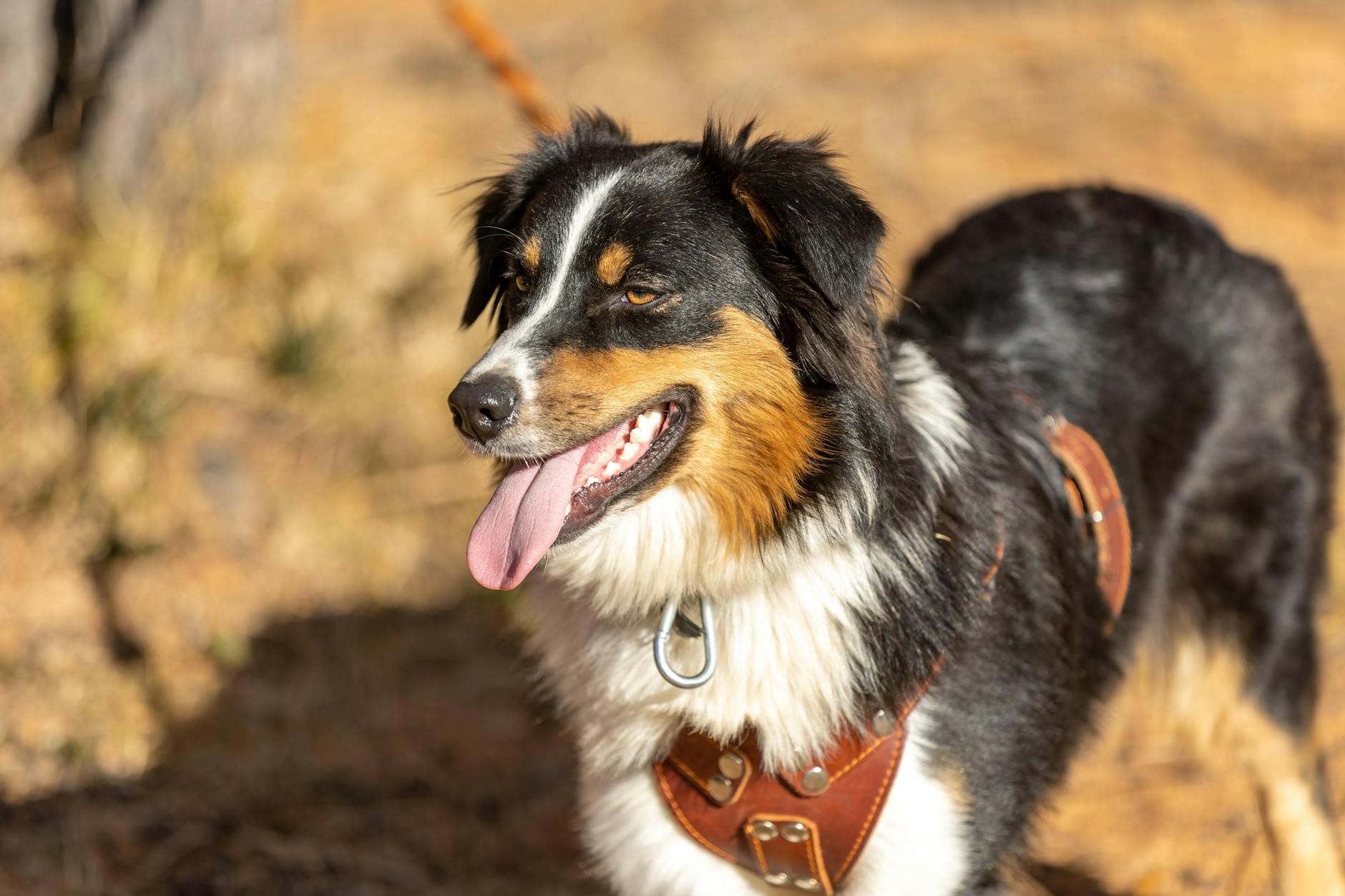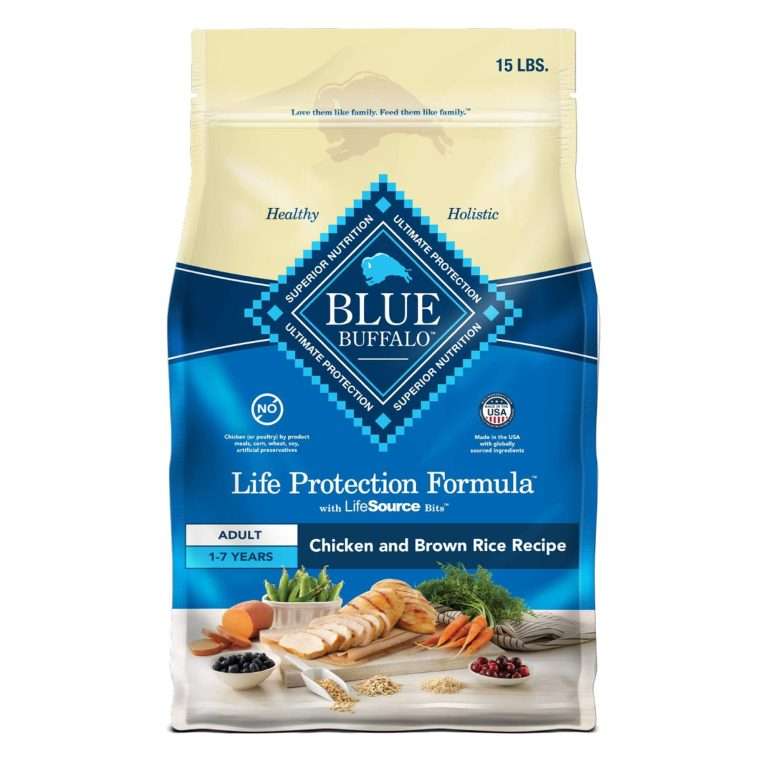Best Dog Food for Australian Shepherds: Top Picks and Nutrition Tips

Selecting the right dog food for your Australian Shepherd is more than just picking a brand—it’s about ensuring your pup stays healthy, energetic, and happy. As a highly active breed, Australian Shepherds require a diet packed with high-quality proteins, balanced fats, and nutrients tailored to their needs.
You could miss out on supporting their boundless energy and overall well-being with the wrong choice. For a deeper dive into the top nutritional picks, check out Best Dog Food For Australian Shepherds In 2024. Your Aussie deserves to thrive with every bite!
Table of Contents
Understanding Australian Shepherds’ Nutritional Needs
Australian Shepherds are known for their unwavering energy, intelligence, and agility. Their diet requires a precise balance of nutrients to keep up with their active lifestyles and unique needs. Below, we’ll break down the most critical elements you should know about their nutritional requirements.
Protein Requirements: High-Energy Fuel for Aussies
Protein is at the heart of a good diet for Australian Shepherds. Why? These dogs are constantly on the move—whether herding, hiking, or just chasing tennis balls. Protein helps maintain muscle mass, repair tissues, and provide the energy this breed thrives on.
- What to look for in dog food?
- High-quality animal proteins like chicken, beef, lamb, or fish are the first ingredient.
- Prefer foods labeled as “high-protein” or tailored for active breeds.
Protein-rich diets support recovery after their adventures while fueling their daily energy needs. For a detailed guide, check out What Is The Best Dog Food For Australian Shepherds? 2024.
Fats and Carbohydrates: Sustained Energy and Overall Health
While protein builds and repairs, fats, and carbohydrates fuel this breed’s high energy demands. Think of fats as their long-term energy reserve, while carbohydrates are their quick energy boost.
- Fats: Look for healthy sources like omega-3 and omega-6 fatty acids. They not only fuel energy but also promote shiny coats and healthy skin.
- Carbohydrates: Whole grains, sweet potatoes, or brown rice can be excellent sources of sustained energy.
But don’t overdo it—Aussies can gain weight if their energy intake far exceeds their activity level. If you’re curious about energy-packed options, check resources like The Ultimate Guide to Feeding Your Australian Shepherd.
Vitamins and Minerals: The Unsung Heroes of Canine Nutrition
Vitamins and minerals are vital for your Australian Shepherd’s overall wellness. They may not grab headlines like protein or fats, but their role is just as important.
- Calcium and Phosphorus are crucial for strong bones and teeth.
- Vitamin A and E: Help with vision, organ function, and immune health.
- Zinc and Selenium: Support joint health and reduce inflammation.
To ensure your dog gets a balanced intake of these nutrients, opt for dog foods aligned with AAFCO (Association of American Feed Control Officials) standards. For more information, visit the Australian Shepherd – Dog Feeding Guide.

Photo by Viktorya Sergeeva ????
Understanding their nutritional needs gives your Aussie the best shot at living a healthy, active life filled with energy and joy. Stay tuned for more tips on tailoring their diet to perfection!
Best Dog Food Brands for Australian Shepherds
Choosing the right dog food for an Australian Shepherd is no simple task. These active, intelligent dogs need a diet that supports their energy, health, and lifestyle. Let’s break down trusted dog food brands and explore whether homemade food might fit your Aussie.
Top Recommended Brands: List and Describe the Benefits of Each Recommended Brand
Australian Shepherds deserve high-quality food packed with balanced nutrients. Here are some of the best options available:
- Orijen Original Dog Food
- Why It’s Great: This high-protein brand uses biologically appropriate ingredients with fresh, regionally sourced meats. It supports active dogs like Aussies with plenty of energy and muscle-repair nutrients.
- Key Benefits: Packed with real chicken, turkey, and fish, Orijen provides natural omega oils for a healthy coat. This formula is also grain-free.
- Royal Canin Medium Adult
- Why It’s Great: Tailored for medium breeds with an active lifestyle, Royal Canin offers a complete and balanced diet.
- Key Benefits: Enriches energy metabolism while supporting skin and coat health. Its kibble shape encourages chewing, improving oral hygiene.
- Blue Buffalo Wilderness
- Why It’s Great: It contains healthy proteins like deboned chicken alongside antioxidant-rich LifeSource Bits.
- Key Benefits: Perfect for dogs requiring sustained energy and weight maintenance. The formula is grain-free, promoting digestion.
- Hill’s Science Diet Active Adult 7+
- Why It’s Great: This formula is specially created for older active dogs and provides a mix of easily digestible ingredients.
- Key Benefits: Promotes joint and heart health while maintaining vitality during the golden years.
If you’re new to choosing dog food, consult resources like Dog Food Advisor’s Recommendations for additional insights into the top-rated brands for Australian Shepherds.

Photo by Sergei Starostin
Homemade vs. Store-Bought: Discuss the Pros and Cons of Making Homemade Dog Food Versus Buying Commercial Brands
The debate between homemade and store-bought dog food comes from control, convenience, and nutrition. Here’s what to consider:
Homemade Dog Food
- Pros:
- Complete control over ingredients, ensuring better quality and avoiding allergens.
- Customizable recipes tailored to your dog’s unique needs.
- No fillers, artificial additives, or preservatives.
- Cons:
- It requires significant time and effort to prepare.
- Risk of nutritional imbalances without veterinary guidance.
- Costlier initially due to high-quality ingredients and food preparation tools.
Store-Bought Dog Food
- Pros:
- Convenience—ready to serve without preparation.
- Balanced recipes formulated by experts.
- Variety in flavors and options for different life stages.
- Cons:
- Some brands include fillers or lower-quality ingredients.
- Less control over unknown additives or preservatives.
- Premium options can be as costly as homemade diets.
The right choice depends on your lifestyle, your dog’s needs, and how much time you’re willing to invest. For example, trying a mix of both could strike a perfect balance—homemade meals for special occasions and reputable store-bought options for daily use. Explore more in-depth resources on Australian Shepherd diets in Nutrition Tips.
Special Considerations for Different Life Stages
Australian Shepherds experience distinct dietary needs depending on their specific stage of life. Their boundless energy as puppies, steady adult demands, and slowing metabolism in senior years all require tailored nutrition. Below, we’ll detail the key considerations for each life stage to help your Aussie thrive.
Puppy Formulas: Specific Nutritional Needs for Australian Shepherd Puppies

Photo by MART PRODUCTION
Australian Shepherd puppies proliferate and demand a precise combination of nutrients to support their development. Their high energy levels and rapid growth make nutrition a key priority.
- Protein Requirements: Aim for 22-32% high-quality protein to support muscle growth and energy generation. Look for foods with chicken, lamb, or fish as the primary ingredient.
- Calcium and Phosphorus: Essential for building strong bones and preventing growth abnormalities like hip dysplasia.
- Fats for Energy: Puppies need higher fat content (8-15%) for endless play sessions. Ingredients like fish oil are excellent sources.
- DHA and EPA: Omega-3 fatty acids are critical for brain and vision development during early stages.
Consider puppy-specific formulas to meet these needs. For more information, check out Overview Of The Australian Shepherd.
Adult Dog Diet: Suitable Nutrition for Adult Australian Shepherds
As your Aussie transitions into adulthood, their energy levels and metabolic rate stabilize. This period calls for a balanced diet to help maintain muscle, energy, and overall health.
- Balanced Protein (18-24%): Adult Aussies still need quality protein from sources like beef or turkey, but not as intensely as puppies.
- Healthy Fats (5-8%): Moderate fat intake is crucial for sustained energy without risking unnecessary weight gain.
- Carbohydrates for Endurance: Complex carbs like sweet potatoes or brown rice can fuel your dog’s active lifestyle.
- Joint Support: Look for added glucosamine and chondroitin to support joint health, especially if your dog is highly active.
For busy owners, you might explore the ultimate guide offered by The Honest Kitchen.
Senior Dog Nutrition: Dietary Needs for Aging Australian Shepherds
As Aussies age, their activity levels and metabolism naturally slow down. Older dogs require a diet tailored to maintain their health, minimize weight gain, and support aging joints.
- Lower Calories: Reduced-calorie formulas prevent weight gain due to lower activity levels.
- Joint Health: Prioritize foods with glucosamine, chondroitin, and omega-3 fatty acids to combat arthritis and improve mobility.
- Easily Digestible Protein: Seniors benefit from high-quality protein sources like fish or chicken to maintain muscle mass without overloading digestion.
- Added Fiber: Dietary fiber from vegetables or grains helps keep digestion regular as the system slows.
Seniors may also benefit from tailored options like those mentioned in The Ultimate Guide to Feeding Your Australian Shepherd.
Focusing on these specific life-stage needs ensures your Aussie gets the best possible nutrition at every phase of their journey.
Common Food Allergies and Sensitivities
Like many other dog breeds, Australian Shepherds are prone to food allergies and sensitivities. These reactions can impact their quality of life, leading to digestive upset or persistent itching. Understanding these allergies is key to keeping your Aussie healthy and happy.
Identifying Allergies: Provide Tips on How to Recognize Food Allergies in Dogs
Is your Australian Shepherd showing unusual behaviors or symptoms? Food allergies can manifest in various ways, and knowing the signs is the first step in addressing the problem.
Here are common symptoms to look out for:
- Itchy skin or paws: Frequent scratching or licking could indicate an allergic reaction.
- Chronic ear infections: Recurring ear issues are often linked to food sensitivities.
- Digestive problems: Vomiting, diarrhea, or a sensitive stomach may point to a dietary trigger.
- Hair loss or coat changes: Thinning fur or dullness in their coat might be allergy-related.
If you notice persistent symptoms, consult your vet. They may recommend a food elimination trial to isolate the allergen. For more details on sensitive stomachs and common allergens, you can explore Best Dog Food For Sensitive Stomachs.

Photo by Mikhail Nilov
Recommended Allergy-Friendly Foods
Switching to an allergy-friendly diet can relieve your Aussie and prevent future outbreaks. When shopping for food, look for brands and ingredients less likely to irritate your pup.
Here are some dog food suggestions for sensitive pooches:
- Grain-free options: These are ideal for dogs with gluten sensitivities.
- Novel proteins: Ingredients such as duck, fish, or venison may reduce the risk of reactions.
- Limited-ingredient diets (LID): These diets simplify meals, making it easier to identify triggers.
- Hydrolyzed proteins: Specially broken-down proteins are less likely to provoke allergies.
Some of the best allergy-friendly choices include formulas free from common allergens like chicken, wheat, and dairy. You can explore more options in our article on Best Wet Dog Food.
Want to dive deeper? A guide on Food Allergies In Dogs provides additional insights on managing this issue for your furry friend.
By recognizing and addressing food sensitivities, you’ll ensure your Australian Shepherd gets the clean, balanced diet they deserve.
How to Transition Foods Safely
Transitioning your Australian Shepherd to a new food isn’t as simple as swapping the bowls overnight. A fast change can upset their digestive system, leading to tummy troubles or a refusal to eat. With a gradual approach, you can help your Aussie adapt seamlessly while maintaining their health and happiness.
Gradual Transition Steps: List steps to gradually introduce new food

Photo by MART PRODUCTION
Switching food gradually over time is crucial for your dog’s comfort. Here’s a simple, fail-proof step-by-step guide for transitioning:
- Day 1-3: Mix 25% of the new food with 75% of the old food.
- Day 4-6: Adjust the mix to 50% new and 50% old food.
- Day 7-9: Increase to 75% new food and only 25% old food.
- Day 10+: Your Aussie should now be ready to eat 100% of the new food!
This method gives your dog’s digestive system time to adjust without causing unnecessary stress. Need more tips on food transitions? Check out How to Switch Your Dog’s Food for additional guidance.
Monitoring for Digestive Issues: Explain what signs to watch for during the transition
Once you’ve started mixing foods, watch your pup closely. Their stomach is sensitive during this time, and attention to changes can make all the difference. But what should you look for?
- Loose stools or diarrhea: A common sign the new food is too rich or a bad match.
- Vomiting: This could indicate a food intolerance or eating too quickly.
- Refusal to eat: Your Aussie might need more time with a slower transition curve.
- Lethargy or irritability: An uncommon but possible reaction to new ingredients.
If any of these occur, slow the transition process or consult your veterinarian. Some minor upsets are normal, but persistent symptoms might mean the new food isn’t right for your dog.
See Tips and Timelines for Transitioning Your Pet to a New Food for a detailed breakdown of safe transitioning timelines. This resource provides actionable steps tailored toward dogs.
Following these steps and monitoring your dog’s health can ensure the transition is smooth and stress-free. Explore related solutions in our guide, The Farmers Dog Food: A Nutritious Choice.
Conclusion
Feeding your Australian Shepherd the right food is a cornerstone of their health and happiness. With their boundless energy and unique needs, selecting a diet that supports their lifestyle ensures they thrive at every stage.
Prioritize quality ingredients and a balanced nutrient profile, whether choosing store-bought options or preparing homemade meals. Observing your dog’s response to a diet change is equally essential for long-term wellness.
Ready to elevate your dog’s mealtime experience? Explore more tailored options in Dog Food to guide your next step. With informed choices, your Aussie can enjoy a healthy, energetic life filled with joyful moments.
FAQs: Best Dog Food for Australian Shepherds
What kind of diet does an Australian Shepherd need?
Australian Shepherds need a high-protein diet with moderate fat content. Quality carbs support their energy levels. Learn more about Australian Shepherd nutrition.
How do I choose the best dog food for my Aussie?
Look for food with natural, wholesome ingredients, and avoid fillers. Protein should be the first ingredient. Check this guide for top options.
Are grain-free diets suitable for Australian Shepherds?
Grain-free diets might work if your Aussie has allergies. Otherwise, whole grains are often okay and add nutrients.
How much should I feed my Australian Shepherd daily?
It varies by size, activity level, and age. Active adult Aussies usually need 2-3 cups of food daily.
Can Australian Shepherd puppies eat the same food as adults?
No, puppies need food formulated for growth and development to meet their nutritional needs.
What ingredients should I avoid in dog food for my Aussie?
Avoid by-products, artificial additives, preservatives, and unspecified “meat meals.” Stick to trusted brands.
Is homemade food a good option for Australian Shepherds?
Homemade meals can work but require vet guidance to meet all nutritional needs. Supplements may be necessary.
Should I consider breed-specific dog foods for my Australian Shepherd?
Breed-specific foods aren’t essential but may cater closely to your Aussie’s needs. Make sure they meet AAFCO standards.
Are there top-rated dog food brands for Australian Shepherds?
Yes! Brands like Ollie and Blue Buffalo are often highly recommended. Explore the top-rated dog foods for Australian Shepherds here.
Do Australian Shepherds require specific supplements?
They might benefit from fish oil for healthy skin, glucosamine for joints, and digestive probiotics. Always check with your vet.
Does food delivery work well for Australian Shepherds?
Yes, premium services offer tailored meals for your dog’s specific needs and can be convenient.







One Comment